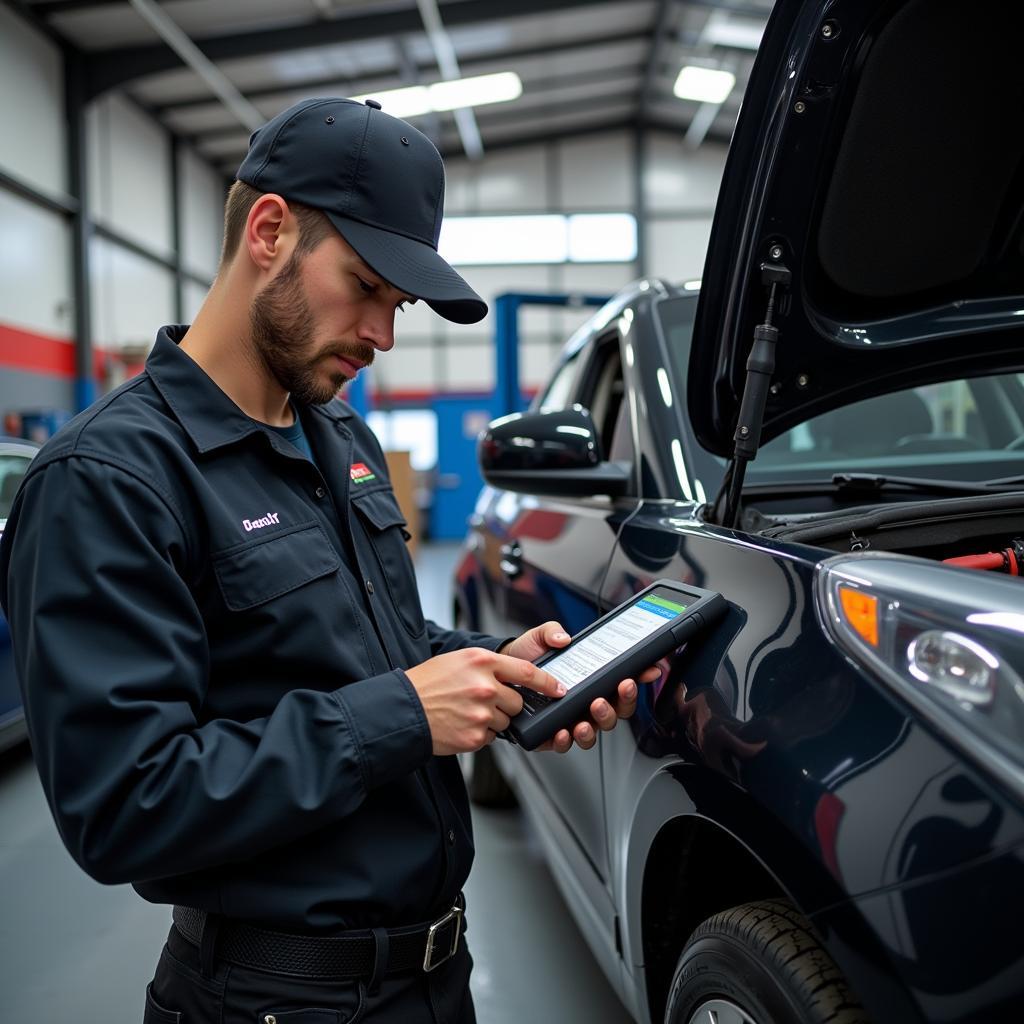For many modern car owners, the appearance of a dashboard warning light triggers an immediate question: do I need to go straight to the dealership? The idea of “Smart Car Diagnostics Only With Dealer” has been perpetuated, but is it always true? This article dives into the evolving world of car diagnostics, exploring when a dealer visit is necessary and when alternative solutions might be available.
Understanding Modern Car Diagnostics
Today’s vehicles are equipped with sophisticated onboard computer systems that monitor various aspects of engine performance, emissions, safety features, and more. These systems generate diagnostic trouble codes (DTCs) when they detect a malfunction. Traditionally, accessing and interpreting these codes required specialized equipment found primarily at dealerships.
The Dealer Argument: Specialized Tools and Expertise
Dealerships often emphasize their exclusive access to manufacturer-specific software and tools, claiming these are essential for accurate diagnostics. This argument holds weight, particularly for newer vehicles with complex systems or issues requiring software updates or programming. Dealers also employ trained technicians with in-depth knowledge of their brand’s vehicles.
The Counter Argument: Independent Mechanics and DIY Options
However, the landscape of car diagnostics is changing. Independent mechanics and even car owners themselves have increasing access to advanced diagnostic tools. Third-party software and devices can now read and interpret many DTCs, providing valuable insights into vehicle problems.
 Independent Mechanic with Diagnostic Tool
Independent Mechanic with Diagnostic Tool
Furthermore, a wealth of online resources, forums, and repair manuals empower car owners to understand common DTCs and potential solutions.
When a Dealer Visit Might Be Necessary
- Complex Electronic Issues: Problems with modules like the powertrain control module (PCM), transmission control module (TCM), or body control module (BCM) often require dealer-level expertise and software.
- Software Updates and Programming: Recalls, software glitches, and certain repairs may necessitate manufacturer-specific software updates, usually performed at dealerships.
- Warranty Repairs: If your vehicle is still under warranty, taking it to the dealer for diagnostics and repairs is usually required to maintain coverage.
- Unique or Brand-Specific Systems: Vehicles with advanced technology or proprietary systems might require diagnostics with specialized dealer-only equipment.
Exploring Alternatives: Independent Mechanics and DIY
- Routine Maintenance and Common Issues: For routine maintenance like oil changes, brake inspections, or diagnosing common problems like a check engine light due to a loose gas cap, independent mechanics or DIY options can be cost-effective.
- Older Vehicles: Older cars generally have less complex electronic systems, making them more amenable to diagnostics and repairs by independent mechanics or knowledgeable car owners.
- Budget Considerations: Dealer visits can be expensive. Exploring alternatives like independent mechanics or DIY diagnostics can potentially save money, especially for minor issues.
Making Informed Decisions about Car Diagnostics
While the phrase “smart car diagnostics only with dealer” might have held true in the past, it’s no longer an absolute. Understanding the capabilities of modern diagnostic tools and weighing factors like the complexity of the issue, your budget, and your car’s age can help you make informed decisions about where to go for car diagnostics.
Remember, resources like car diagnostics cost, car diagnostic coupons, and information on future car diagnostics can further empower you to navigate the world of car maintenance and repairs confidently. You can also find helpful resources like diagnostics near me car and free car computer diagnostic near me.

Leave a Reply